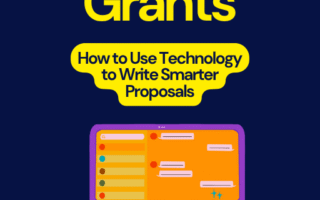Microsoft Grants: An In-Depth Guide.
If you’re engaged in academic research, technological innovations, or non-profit work, the phrase “Microsoft grants” may have sparked curiosity in your mind.
Microsoft grants are designed to foster technological innovation, support scholarly pursuits, and enhance community outreach. By understanding the nature of these grants, you can gain substantial funding to drive your projects forward.
Microsoft, the global tech behemoth, extends its financial support through a myriad of grants in different domains, including AI, computer science, sustainability, and accessibility, to name just a few. Below, we’ll delve into the specifics of several Microsoft grants, offering practical examples of their potential impact.
Microsoft AI for Accessibility Grants
Microsoft’s AI for Accessibility program is a $25 million, 5-year initiative launched in 2018 to put AI tools in the hands of developers to accelerate the development of accessible and intelligent AI solutions. It grants access to Microsoft Azure credits, AI tools, and technical expertise to entities that are developing solutions that empower those with disabilities.
For example, InnerVoice, a mobile app designed by iTherapy, received a grant from Microsoft to develop AI-enhanced solutions to facilitate communication for those with speech-related disabilities. This app incorporates facial recognition, speech-to-text technology, and a 3D avatar, making communication a breeze for those previously struggling.
Microsoft AI for Earth Grants
The AI for Earth initiative focuses on the vital domains of climate change, agriculture, biodiversity, and water. The grants help scientists, researchers, and organizations leverage AI to understand and tackle environmental challenges.
Project Premonition, for example, uses autonomous systems and genomics to detect potential pathogens before they cause outbreaks. Funded by an AI for Earth grant, this project could radically revolutionize our approach to public health.
Microsoft AI for Health Grants
This program leverages AI to empower researchers and organizations around the world to improve the health of people and communities. It focuses on four areas: accelerating medical research, increasing access to healthcare, reducing health inequities, and improving global health insights.
Take the case of the Novartis Foundation, which used Microsoft’s AI for Health grant to develop AI models that accurately predict cardiovascular disease, targeting underserved populations. This effort illustrates how the grant can facilitate the democratization of healthcare.
Microsoft AI for Humanitarian Action Grants
Through these grants, Microsoft supports initiatives that use AI to alleviate the impact of natural disasters, protect human rights, assist refugees, and promote child safety.
A case in point is Operation Smile, which leveraged an AI for Humanitarian Action grant to develop a smartphone app that assesses the severity of children’s cleft conditions, enabling remote consultations and prioritizing surgical interventions.
Microsoft Research Dissertation Grants
These grants aim to recognize, support, and mentor doctoral students as they complete their dissertary research. The grant especially aims to promote diversity among doctoral candidates in the computing field.
One recipient, Sarah McRoberts of the University of Minnesota, used her grant to study how rural communities use technology and interact with data privacy. Her research has the potential to impact policy and design considerations for rural technology use.
Microsoft Research Faculty Fellowship
This program recognizes innovative, promising new faculty members and provides them with support for their research. The focus is on encouraging unique approaches to computing innovations.
For example, Deborah Estrin of Cornell Tech used her Microsoft Faculty Fellowship to develop Small-Data Health, a project that leverages personal digital traces to improve individual healthcare.
Microsoft Azure Sponsorship Grants
Microsoft offers Azure Sponsorships to eligible customers and organizations to help them leverage cloud computing capabilities. This is particularly valuable for non-profits, startups, and educational institutions.
For instance, the San Diego Supercomputer Center used an Azure grant to host HPC simulations for COVID-19 therapeutics. This allowed them to quickly ramp up computational resources in response to the pandemic.
Microsoft Investigator Fellowship
This program identifies tenure-track faculty in Europe who have the potential to make a significant impact in their field over the next decade. The fellowship provides unrestricted cash awards and the opportunity for winners to collaborate with Microsoft Research.
Alice Oh from KAIST, for instance, used her Investigator Fellowship to research AI interpretability, working closely with the Microsoft Research team to make strides in this critical field.
Microsoft Garage Internship
While not a conventional grant, this competitive program offers students the opportunity to collaborate on experimental projects and experience firsthand the development of Microsoft products.
Interns like Ilse Verdiesen, for instance, worked on the team that developed Project AIX, an AI training platform built on Minecraft, thus contributing to the practical application of AI in gaming.
Conclusion
Microsoft grants are powerful resources to aid research, innovation, and community projects, offering both financial assistance and expert collaboration. By understanding the nature of these grants and how to apply for them, you could secure a significant boost for your project or research. The impact of these grants spans the globe and their potential is as broad as your imagination.




